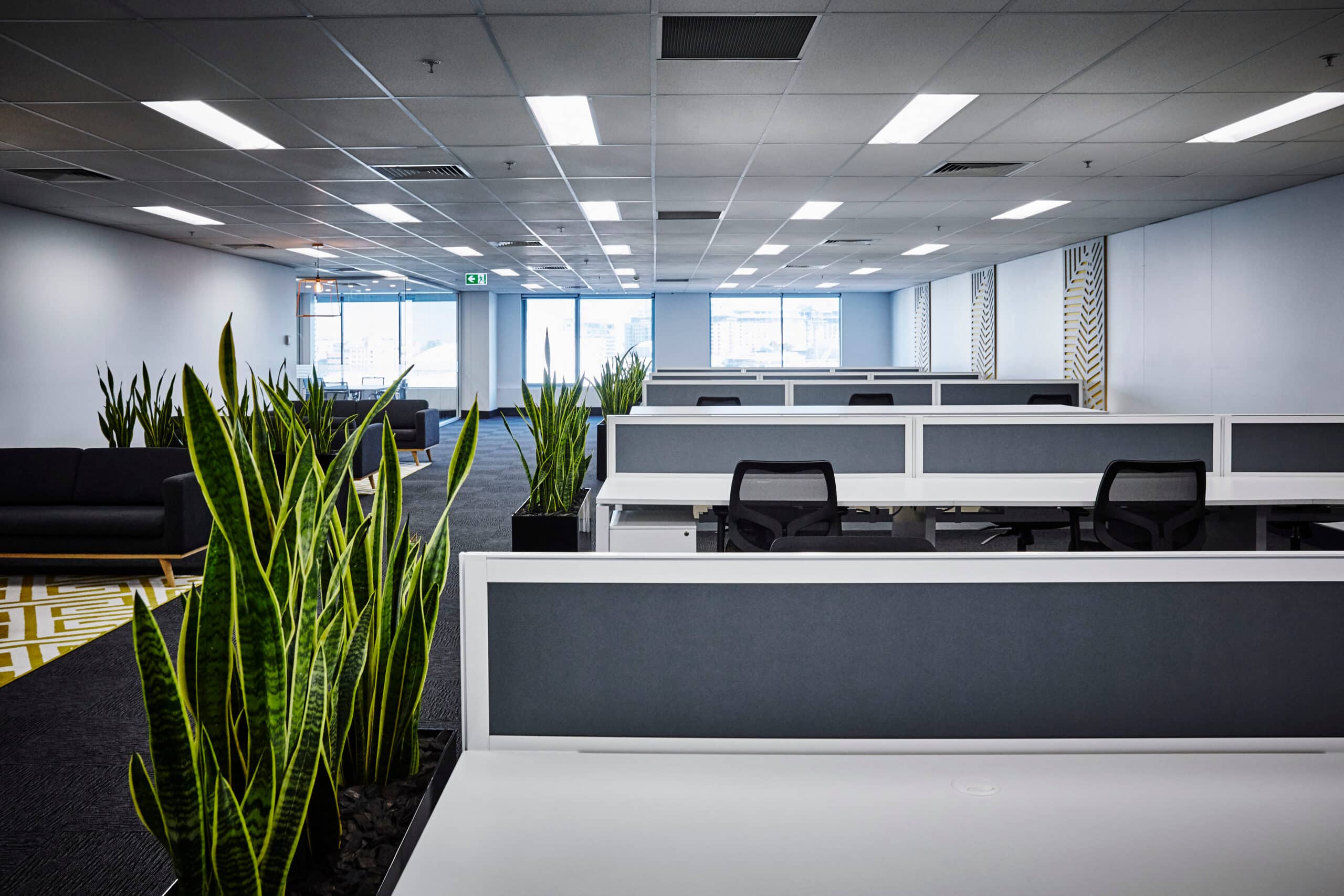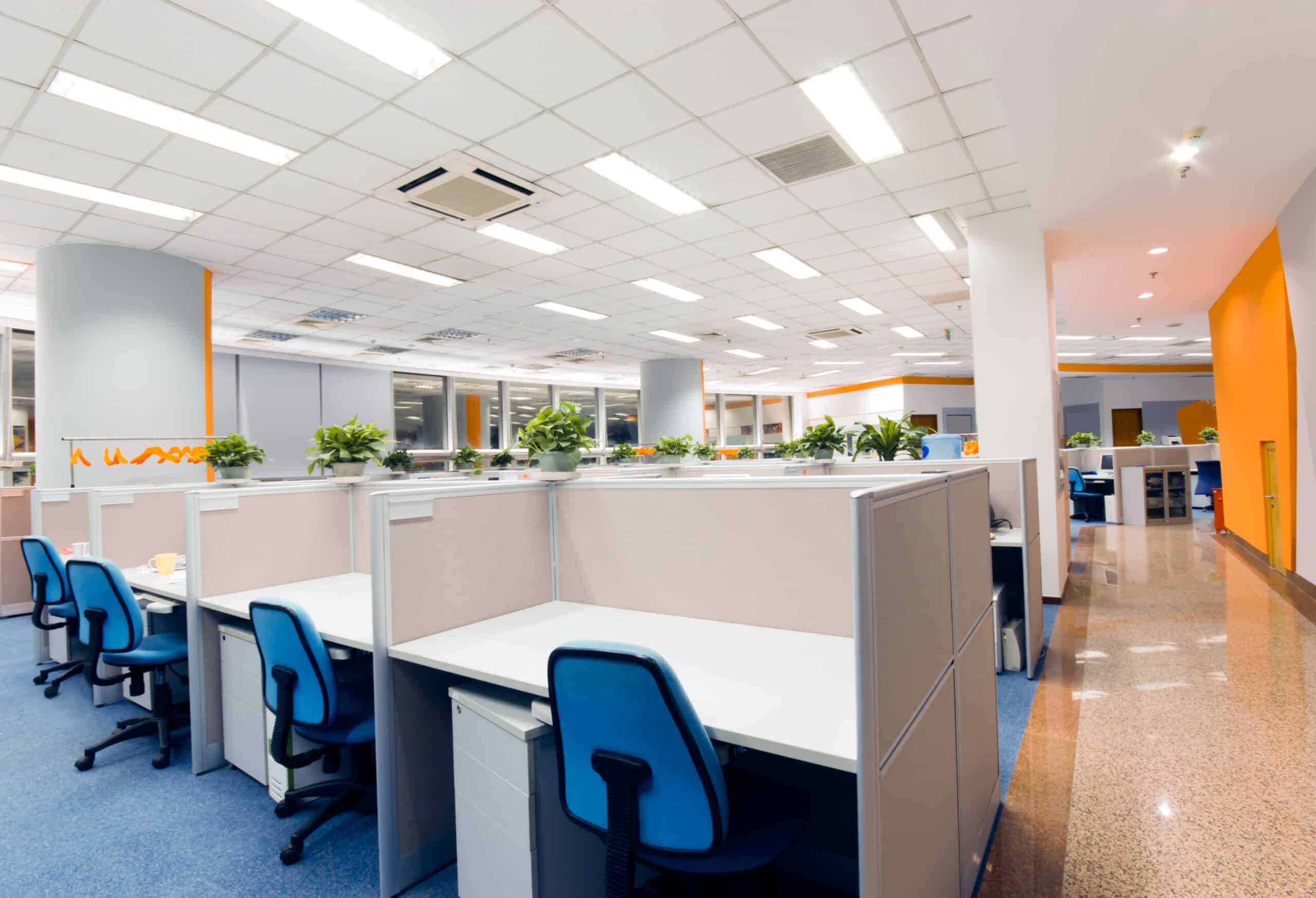If you’re considering a future office move, new build or renovation, you may want to think outside the box before assuming you must frame yourself and your employees in with permanent walls. Yes, floor-to-ceiling drywall walls have some inherent benefits. You can paint them. You can nail things into them. You can close the door, lock it and know your office is relatively secure. They’re pretty good at muffling sound.
One thing that drywall walls are not is flexible. Once you build a permanent wall, removing it or relocating it is an involved, expensive process. In some environments, modular office walls offer a better solution for delineating work areas and office zones. Here are some cases when modular makes sense.
- Older Buildings. Older buildings are great candidates for modular walls because installing drywall walls may require completely rebuilding the fragile infrastructure. Installing modular walls will not affect or damage the existing structure.
- Companies Wanting to Appeal to a Younger Workforce. Millennials and post-millennials value flexibility. Modular walls allow businesses that rely on a younger workforce — tech companies, for example — to deliver flexibility in a tangible way.
- Trading Rooms. Partial-height modular walls allow traders to see monitors and each other, which is necessary for performing their jobs.
- Companies With Needs to Visually Monitor Surrounding Areas. Banks, insurance offices housing multiple agents, tax preparers and other client-centric businesses can provide better customer service when they can immediately see when their clients arrive for appointments.
- Companies With High Employee Turnover. Large companies with significant turnover rates can expedite onboarding of new employees when they’re able to quickly change furniture configurations to accommodate new hires.
- Companies Where Collaboration Is Key. Modular walls allow employees of ad agencies, publishing companies, marketing firms and other highly collaborative offices to brainstorm, share ideas and relay information efficiently.
- Companies Whose Workforces Aren’t in the Office Daily. Modular walls allow businesses with large outside sales forces or employees who telecommute part-time to maximize the use of their square footage. Employers can assign spaces as needed by employees and tailor the size of each space according to what the individual employee needs.
Modular Walls Deliver the Ultimate in Flexibility
As a furniture installer in Houston for more than 30 years, Houston Installation Services has helped hundreds of local companies with their office renovations and relocations. Many of these companies have incorporated modular walls into their spaces, but one company may be the poster child for the benefit of modular walls, and the reason to have a relationship with a skilled office furniture installer: Halliburton.
Halliburton, one of the world’s largest providers of products and services to the energy industry, employs 50,000 people worldwide, many of them in Houston. Halliburton rearranges its modular furniture on an almost-ongoing basis, depending on the size of the projects it’s working on at the time. A different team is assigned to each project, and each team comprises various numbers of people with distinct needs and responsibilities. Hence, they need maximum flexibility. HIS estimates it has disassembled and reassembled Halliburton’s furniture approximately 30 times over the past decade.
If you’re not sure whether modular walls would be an asset to your space, HIS would be happy to provide expert advice. Contact us today for a free, no-obligation assessment.







